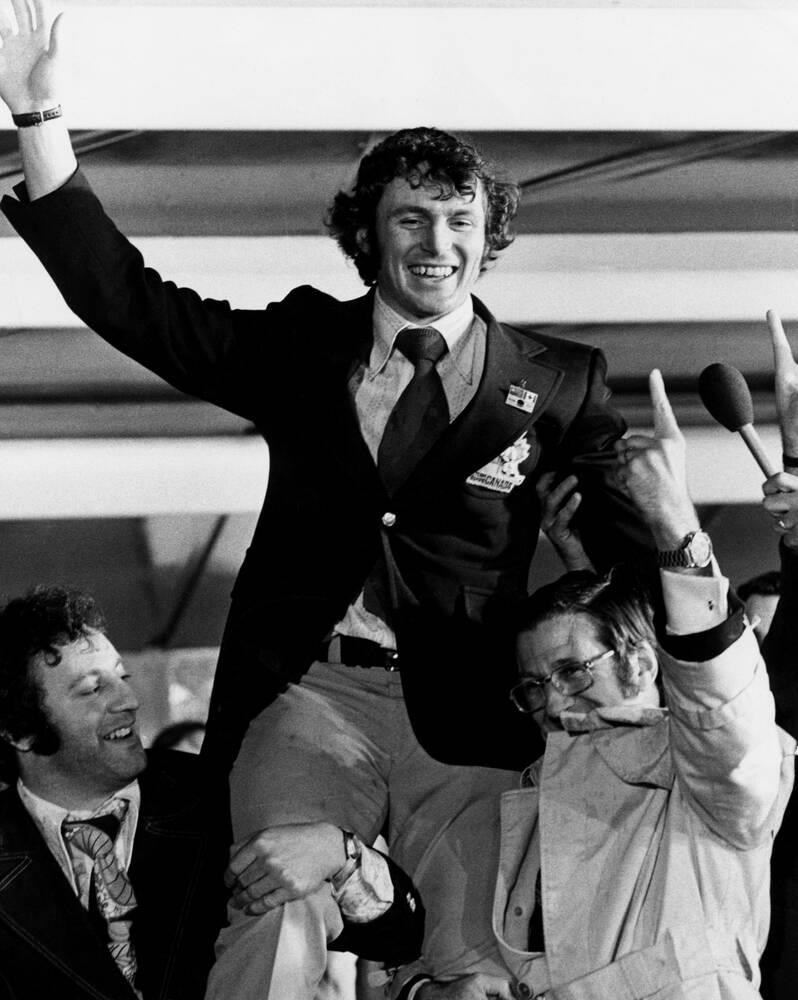Here’s a shot! Henderson made a wild stab for it and fell. Here’s another shot. Right in front. They score! Henderson has scored for Canada!
— Foster Hewitt, Moscow, Sept. 28, 1972
What you need to understand about the Canada-Russia series, Junior, is it was about way more than hockey.
When Paul Henderson scored the winner with 34 seconds left in the final game, 50 years ago today, it wasn’t like Canada’s other big sports moments.
Not Sid the Kid’s golden goal at the Vancouver Olympics, not Gretzky-to-Lemieux in 1987, not “Touch ’em all, Joe” Carter’s homer for the Blue Jays in 1993. It sure wasn’t some feel-good Disney movie like the Americans’ Miracle on Ice in 1980.
No, winning the summit series was more like winning an axe fight. It transcended sport, was a generational benchmark: People remember where they were when Henderson scored in the same way they remember where they were on VE Day, when JFK was shot, when Neil Armstrong walked on the moon, or on 9/11.
The background: In 1972, for the first time, the country’s best NHL players met the U.S.S.R. in an eight-game series — four in Canada, four in Moscow — that we expected to win in a walk.
Sure, the Soviets had dominated international play for years, but they had never faced the pros. The Soviet roster was dotted with the same names — Mikhailov, Kharlamov, Petrov, a young Vladislav Tretiak in net — who had lost 5-1 to a team of Canadian amateurs at Victoria’s Memorial Arena in 1969.
Except the series began with a 7-3 blow-out loss to the visitors in the Montreal Forum, which was kind of like the Pope losing in the Vatican.
By the time play shifted to Moscow, the Soviets led two games to one, with one tie. Then they won game five, too.
Canada was on suicide watch. Maybe it’s because this was at the height of the Cold War, and at a time when the notion of hockey as key to Canada’s identity was more than a Timmy’s commercial, but people took it seriously.
Then came the turnaround. Henderson, a Toronto Maple Leaf who hadn’t been expected to play a prominent role, scored the winner in each of the final three games, including that legendary last-minute marker, and the country went nuts.
The Victoria Times managed to rush the news into that afternoon’s edition, where it shared the front page with a story about Asian refugees landing in Canada after being driven from Uganda by despot Idi Amin.
The premier of the day, New Democrat Dave Barrett, joined reporters watching the game in the legislature press gallery, and jumped for joy when the puck went in and the Russians fell. “The French couldn’t do it, the Germans couldn’t do it. Now Canada has done it but they had better get out of town before it starts snowing,” he enthused after the game.
Today’s premier, John Horgan, watched in the same way as a gazillion other Canadian kids that morning: glued to a TV set in the school gym, in his case Saanich’s Reynolds Secondary.
“I remember the game vividly,” he said Tuesday. “I was a huge Maple Leafs fan at the time, so I was happy to see Paul Henderson playing for Canada. Then he scored the winning goal and, for that one moment, all of Canada seemed to stop and cheer this smalltown Ontario boy.” OK, maybe not all of Canada. Some were upset about our team’s boorish behaviour. Victoria Mayor Peter Pollen called it “disgraceful” and councillor Mike Young declared it “deplorable.”
Columnist Jack Scott wrote: “I have never seen sportsmanship at a lower level than it was throughout this series by the Canadian players. It will be years, if ever, before we can live down the shame. If there’s a Soviet citizen who sees us as anything but a mindless, vicious, crybaby people he can’t have been watching that little screen.”
OK, maybe the place of Henderson’s goal has been overstated, its importance exaggerated by a bunch of oldsters who first viewed it through the rose-tinted lenses of their own youth. (When politician Ken Dryden met the Times Colonist editorial board in 2008, he wanted to talk about poverty reduction, but the grey-haired journalists just wanted to ask about how it felt to race down the ice after the goal.)
Still, 1972 was a big deal. A quick Google turns up at least 15 books about the series, from Scott Morrison’s The Days Canada Stood Still to Dave Bidini’s A Wild Stab For It and Hockey Showdown by Harry Sinden, who was Team Canada’s coach (and the godfather of Gord Downie of the Tragically Hip, whose song Fireworks is about a relationship that began while watching the “goal that everyone remembers.”)
And if the series started with us fearing and loathing the strangers on the Soviet team, it ended with us pulling down the barriers as they became better-known, more human.
When Tretiak returned to Victoria to promote his memoir in 1987, huge crowds cheered him at Bolen Books, where they sold 500 copies, and at Save-On-Foods, where he signed another 355.
“Looking back on it, we had little understanding of how that series would change hockey,” Horgan says. “Hockey became the world’s sport. The game changed here at home, too, for the better.
“Hard to believe 50 years has passed.”


